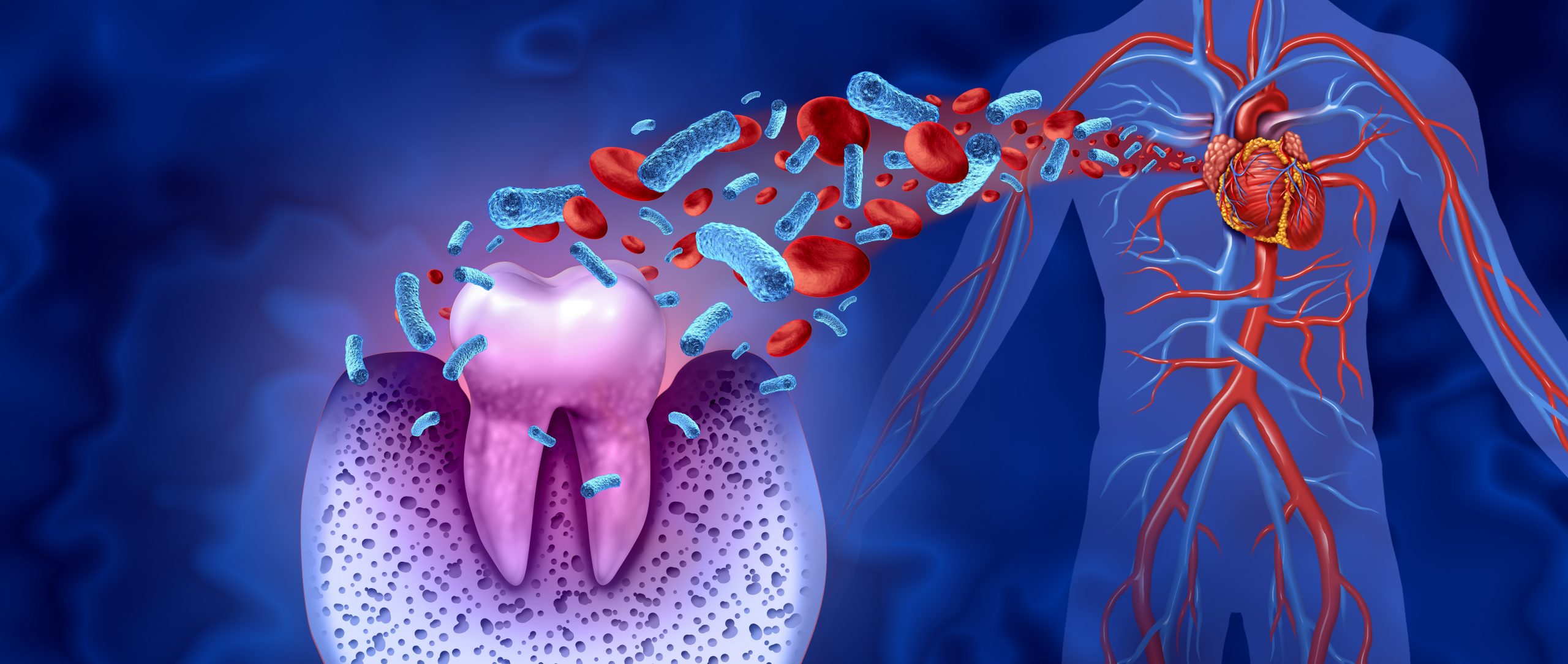
You brush. You rinse. You move on. Gum health feels small. Separate. But the body doesn’t build walls like we imagine. The mouth isn’t its own system. It’s a door. And when gums are inflamed, that door stays open.
Bleeding gums aren’t just local trouble. They leak bacteria into the bloodstream. Tiny invaders hitch a ride. The immune system reacts, but not always fast enough. Inflammation begins. Quietly. It travels beyond the mouth.
Gum disease doesn’t stay where it starts. It travels under the radar—toward places it doesn’t belong.
Inflammation doesn’t need permission to spread
The bacteria that cause gum disease don’t stop at the gumline. They trigger an immune response. That’s what causes swollen gums. Bleeding. Tenderness. But that same inflammation can reach the arteries. It can thicken vessel walls. Harden them.
That’s the link. Chronic inflammation—from unbrushed plaque, from neglected gums—becomes systemic. And over time, it doesn’t just affect your mouth. It changes how blood flows. How arteries behave. How your heart responds to stress.
The blood vessels notice what the gums go through
Inflamed gums release signals. Chemical messengers. Cytokines. These drift into the bloodstream. They tell the body to react. And that reaction isn’t limited to the mouth.
The walls of blood vessels stiffen. Plaques form more easily. The arteries narrow. It’s subtle. Gradual. But real. The body responds to gum disease the same way it might respond to an infection anywhere else—by locking down, tightening, inflaming.
That’s where risk begins to grow. Slowly. Silently.
Bacteria from the mouth can reach the heart
Some bacteria in your mouth can survive the trip into your bloodstream. And if they settle in vulnerable places—like damaged heart valves or areas of arterial weakness—they cause infection or contribute to buildup.
In people with existing heart conditions, this risk is even higher. The bacteria don’t just travel—they act. They worsen the environment. They increase the chance of complications. A small infection in the mouth becomes a much bigger threat elsewhere.
People with gum disease are more likely to develop heart problems
This isn’t theory. It’s been observed again and again. People with chronic gum disease are more likely to develop heart disease. More likely to have strokes. More likely to deal with high blood pressure.
It’s not about fear. It’s about connection. The body carries what the gums create. And when what the gums carry is inflammation, the rest of the body feels it—especially the heart.
This doesn’t mean gum disease causes heart attacks. But it contributes. It lays the groundwork.
Not everyone with gum problems will develop heart disease—but the risk is real
Risk isn’t destiny. But it’s a pattern. If your gums bleed often, if they’re swollen, if they recede—it’s not just a dental issue. It’s a signal. One the heart might hear before you do.
And if you already have heart issues, gum disease doesn’t just increase risk—it complicates treatment. It slows healing. It adds variables. Variables your body doesn’t need.
Treating gum disease helps reduce heart strain
Cleaning your teeth can lower inflammation in the body. Brushing. Flossing. Removing tartar. All these quiet actions change how your blood vessels behave. How your immune system functions. How your heart responds.
You might not feel the shift. But it happens. Studies show it. After a dental cleaning, markers of inflammation drop. Blood pressure improves. Risk lowers—not dramatically, but measurably.
Gum care becomes heart care. Quietly. Day by day.
Daily habits become more powerful than prescriptions
Toothbrush. Floss. Rinse. It feels simple. But it interrupts the chain reaction that begins with plaque and ends with inflammation. It’s more powerful than it looks.
You don’t need a complicated plan. You need consistency. Two minutes. Twice a day. Floss before bed. Regular checkups. That’s what lowers risk. Not just for your gums, but for your entire body.
The best part? You don’t have to wait for symptoms. You can start now, before the damage begins.
Dentists may be the first to notice heart-related warning signs
A dentist might see what your doctor hasn’t. Swollen gums. Gum pockets. Infection. If they ask about your heart, it’s not random. They see the connection. They know what bleeding means beyond the mouth.
Your dentist and doctor aren’t separate teams. They speak different languages, but they’re reading the same story. And that story starts in your mouth more often than you think.
Ignoring the gums means missing the first chapter.
Prevention works better than repair—for both the heart and the mouth
You don’t reverse heart disease easily. Or rebuild gum tissue quickly. But you can stop both from worsening. From spreading. From becoming harder to manage.
Caring for your gums is one of the smallest, most powerful things you can do for your heart. It doesn’t require medicine. It doesn’t require surgery. Just a toothbrush. And attention.
Gum health isn’t about beauty. It’s about protection. Quiet, daily protection that the heart depends on more than we’ve been taught to believe.
